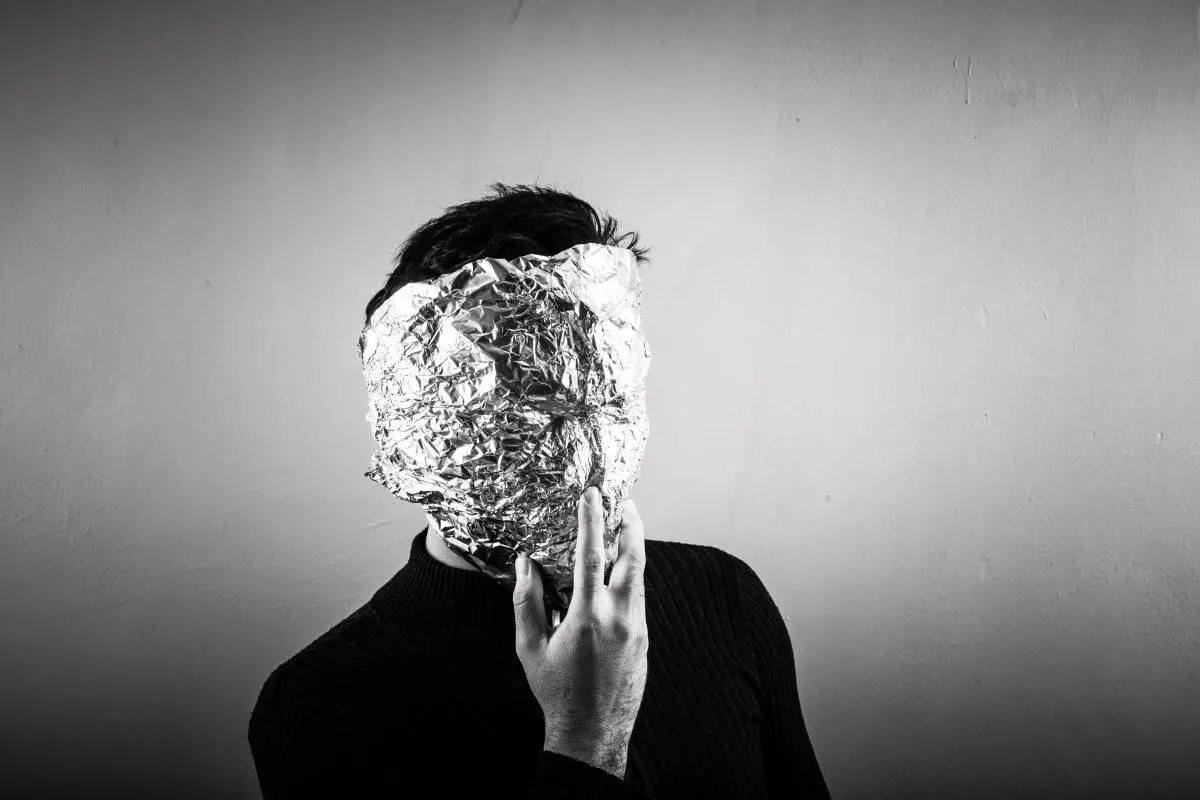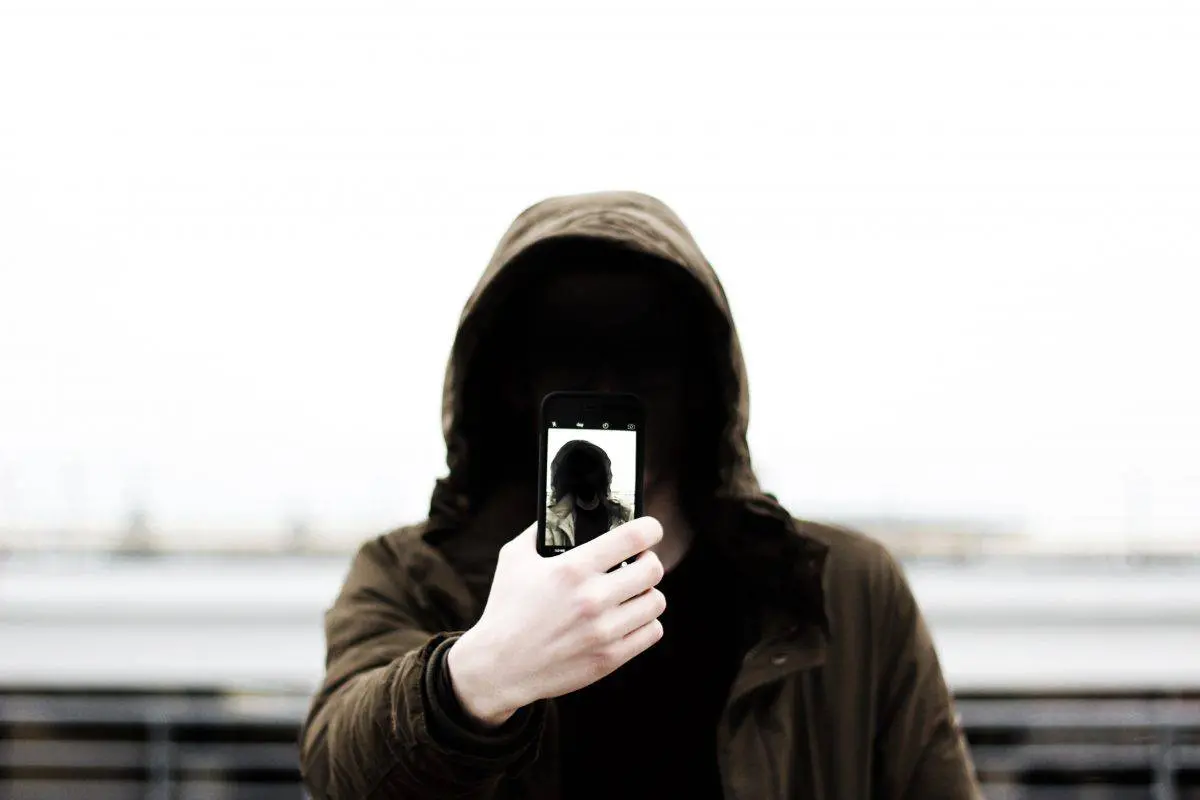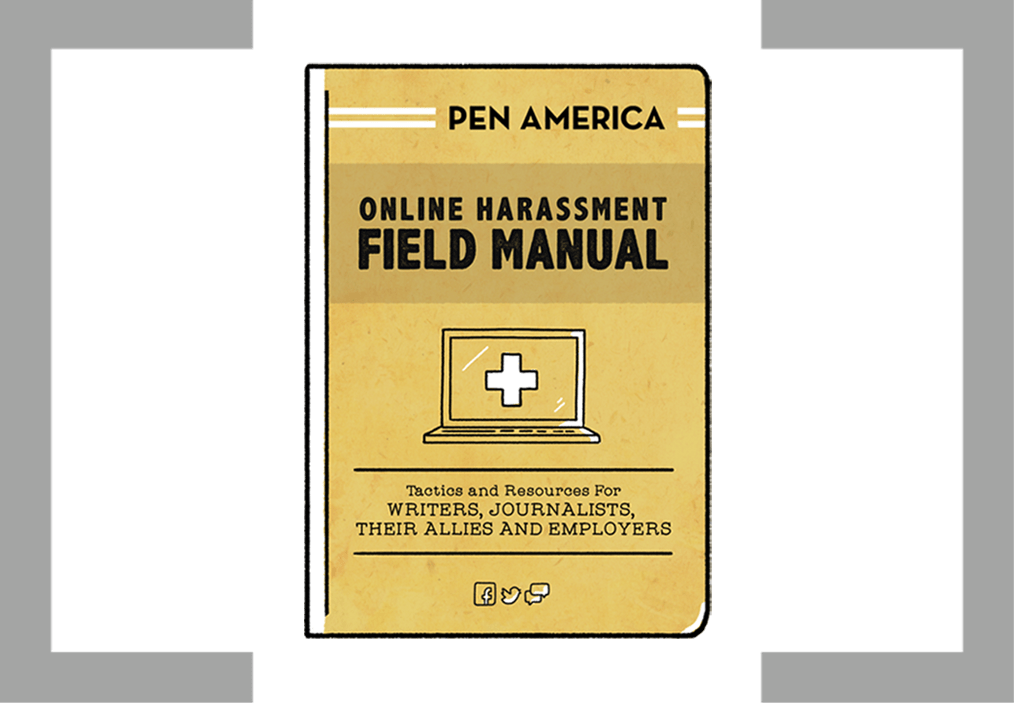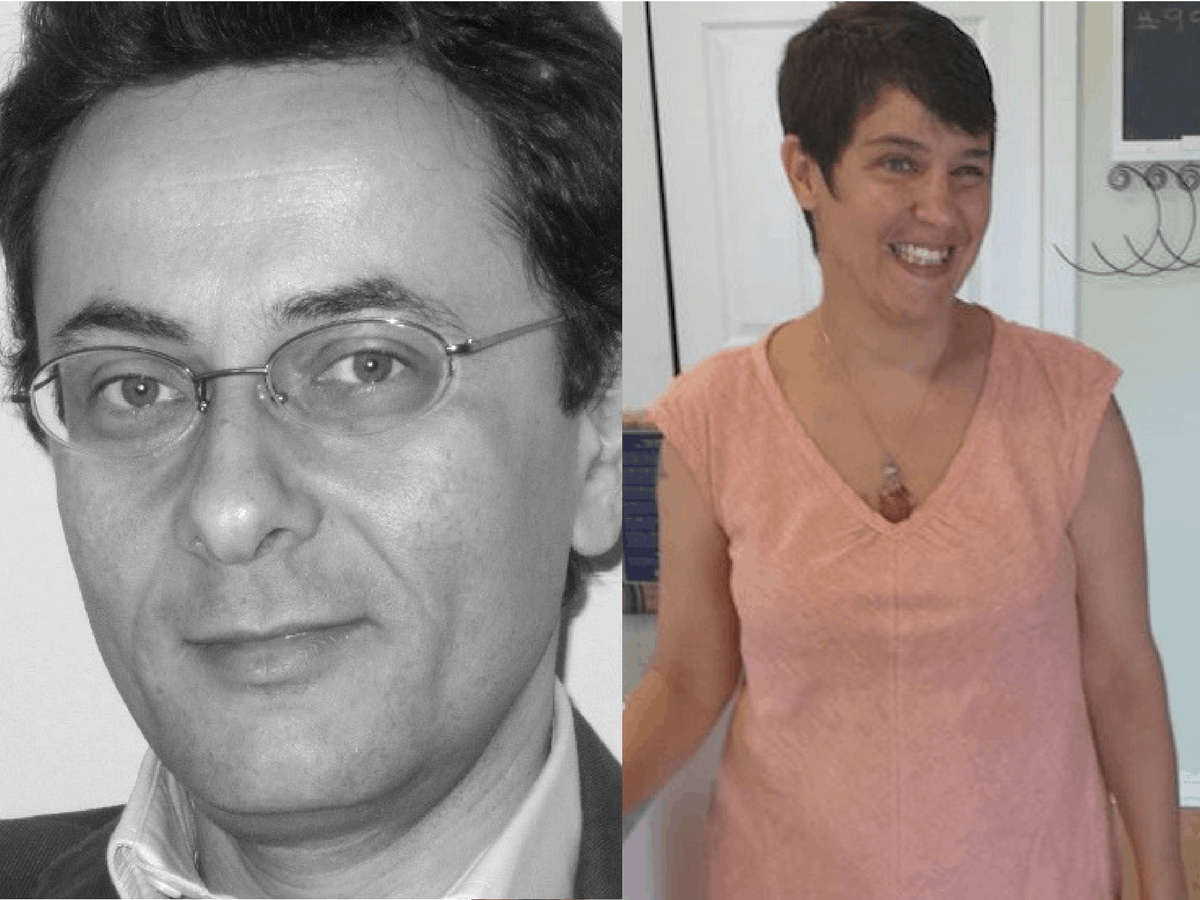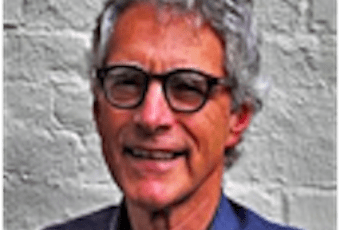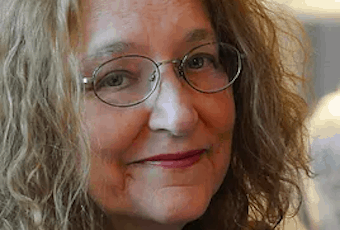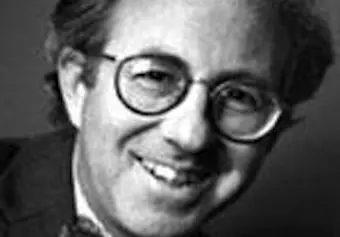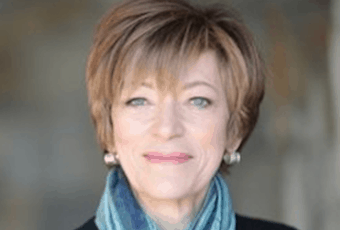PEN America’s Eurasia Project Director Polina Kovaleva speaks to Tatiana Yankelevich, the daughter of Andrei Sakharov and Elena Bonner, on imprisoned filmmaker and 2017 PEN/Barbey Freedom to Write Award winner Oleg Sentsov receiving this year’s Sakharov Prize for Freedom of Thought.
POLINA KOVALEVA: It is very symbolic to me that we meet not only in anticipation of the Sakharov Prize ceremony this Wednesday but on the International Human Rights Day. Thank you for agreeing to talk to us. In the context of the Russia-Ukraine war which once again hit the news with the recent detention of Ukrainian sailors and imposition of martial law in Ukraine, giving the Sakharov award to Oleg Sentsov, who Russia considers a terrorist, is a big statement. What do you think this means for Sentsov, for Ukrainians, and for the international political equation?
TATIANA YANKELEVICH: I absolutely agree with you that it is symbolic that we are here today on Human Rights Day. I remember reading Sakharov’s human rights statement on his behalf back in the early 1980s when he was in exile, that the ideology of human rights is probably the most unique, if not the only ideology that can unite people of all creeds, all nationalities, any historical background because it is universal, or as we say in Russian общечеловеческая—belonging to all humans. All humans are entitled to human rights independent of where they come from, and Sakharov was absolutely right in saying it can unite people of different beliefs, different creeds and denominations, and of different ethnic and historical backgrounds. It is also the day when Sakharov, back in 1975, was awarded the Nobel Peace Prize. It is also somewhat symbolic that the European Parliament announced it was awarding the Sakharov Prize for Freedom of Thought to Oleg Sentsov on exactly the same time when Sakharov learned that he was awarded the Nobel Peace Prize. I do not wish to draw any parallels or comparisons, but I think that there is a certain symbolism to all these dates.
The evolution of Oleg as a human being, as an activist, as a thinker is a remarkable path to delve upon because, from what he was doing as a relatively young man right after the occupation and annexation of Crimea, he had evolved into a person who thinks in universal categories. To stage a hunger strike for the release of political prisoners of conscience is, to me, a remarkable evolution.
KOVALEVA: Oleg has won more than 10 various awards, including the 2017 Freedom to Write Award from PEN America. When it comes to such a difficult case like Oleg’s, who Putin obviously doesn’t want to release, do you think an award is still a valuable instrument?
YANKELEVICH: Speaking of Sakharov, the Nobel Peace Prize gave him such personal authority and clout—apart from many other personal qualities and achievements that he had had—that it drew the attention of the world human rights community and the world’s public opinion, which protected him in the worst years of his life and, I am convinced, ultimately served to create the momentum that led to his release. I very much hope that it will also work for Sentsov, even though the situation now is different, and it is quite possible now that Russian authorities are more impervious to the pressure of the world public opinion, especially these days, but I think it is valuable and it will definitely serve the purpose of Sentsov’s release. I hope it’s not overly optimistic though it does sound very rosy and possibly unrealistic too, but I certainly would welcome the release of Sentsov, as well as other Ukrainian prisoners in Russia, even though they may not be considered political prisoners in the same sense as prisoners of conscience in the Soviet times, I think they are held arbitrarily. They are held against the main tenets of the Russian constitution, and it is an affront to humanity, an affront to international law.
KOVALEVA: Regarding the current Ukrainian situation, there is a perception that if Yulia Tymoshenko, who is now the leader in the election round according to some opinion polls, if she wins the upcoming election in Ukraine right now, the political prisoners will be released. Do you think both of these things, her victory and the release, are possible?
YANKELEVICH: I am not an expert or a scholar of Ukrainian domestic policies and current events, and the same goes for the acting president, Petro Poroshenko, so I’m really not able to pass judgment on the outcomes. In my mind, Ukraine needs to shape its agenda, its position in regard to the behavior of Russia, and I do not think that position is clear cut, possibly even to the main actors of the Ukrainian political sphere. And of course there are aspects that make it particularly difficult, like the fact that there is no declaration of war on either side, and Ukraine that has been weakened for decades by Russia’s interference in their internal affairs is obviously unable to declare war to Russia. I think the main reason for that is that Ukraine cares more for human life than Russia. Human life is not a commodity in the Russia of today. It is dispensable, it is of no value and I think that is also the reason for the most cruel, inhumane behavior that violates every international norm. The way Russia treats its prisoners in general and the way it treats Ukrainian activists—the kidnappings, the show trials, the charges— is all completely arbitrary in my opinion. One thought I had in this regard comes from the vocabulary of psychiatry, surprisingly. It is a term of transference, and I believe that Russian authorities demonstrate this phenomenon by transferring their own faults onto the people they want to repress and punish, and one such person is obviously Oleg Sentsov.
The transference of the charge of terrorism, of which he was not guilty and that was not proven by any accepted legal norms in the court, is the one that should really go to Russian authorities, the agencies that are supposed to be law enforcing and definitely law abiding.
I think that we can contemplate the situation of kidnappings, of taking people across the border, of forcing Russian citizenship on them as something that borders on terrorism. That to me is an abhorrent trait, and I’ve seen it ever since the annexation of Crimea and all other destabilizing activities that Russia engages in Ukraine.
KOVALEVA: Back to Sakharov, there is this island free from propaganda in Moscow: the Sakharov Center and his archive. How often is Sakharov now remembered in Russia, and when you go the Sakharov Center what kind of public do you see there now?
YANKELEVICH: I am happy to say that there are more and more young people at the Sakharov Center. They have been attracted by the programs over the last 10 years and that is a very hopeful sign. Mostly at the events before that tendency started, you would see people of the 60s, the so-called “’шестидесятники,” who were close to the human rights movement, people who had friends in the human rights movement, and it was a rather sad sight, but I mostly go to Moscow for events that have to do either with my stepfather, Andrei Sakharov, or my mother, Yelena Bonner, because it is not easy to travel more often, so my perception may not be indicative of the type of milieu that the Sakharov Center attracts. For example, I have never been to any of the Sakharov’s маёвка, or May Days, let’s call it that, because Sakharov was born in May of 1921. Usually the Sakharov Center has a huge event around that date which attracts all sorts of people. I’m hoping to go this year, so maybe I will experience it firsthand at that time.
The Sakharov Center is embattled, as is any independent human rights organization in Russia right now. We are keeping our fingers crossed and trying to raise the public awareness and support. I don’t even mean monetary support, but support that would make it difficult for the Russian authorities to close down the center in the foreseeable future, especially given the fact that 2021 would be the year of Sakharov’s centenary, and hopefully, the authorities will try to avoid the scandal and the shame that would be associated if the Sakharov Center would be closed. (The official title of its governing body is the Public Commission of the Preservation of the Legacy of Academician Andrei Sakharov). There are various provocations, ugly scenes at exhibitions that are obviously staged by ultra-right and xenophobic Russian associations or movements that exist in Russia today. These provocations, fortunately, have so far not been very destructive but you never know, and so the existence of the Sakharov Center is precarious, to say the least, and I know that such is the existence of many other well-known human rights organizations, such as the Memorial Society, and lesser known independent organizations. Of course, there is this infamous list of foreign agents where both Memorial and Sakharov Center were put, and many others as well. It is very difficult to continue, but they do continue and they show courage and the perseverance, which I admire.
From that note, I want to go back to Sentsov because I followed his case with great interest and sympathy. I admire his courage and perseverance and I wish him the best. I think the Sakharov Award, which has a mixed history and mixed reviews in the past, in my opinion and my mother’s while she was living, did from time to time made good choices and this is definitely one of those good choices. I want to say, I have such respect for a man who is younger than my children. I wish his family all the very best and I hope the award will ease their financial hardship, the hardship that his mother endures caring for his two children. It is a unique case in the history of Slavic countries, certainly of the Soviet Union, where you would have rarely met a single father; it was usually a single mother that would care for the children. It is very unfortunate and I sympathize with him greatly. But I want to say a few words about the political side of this case. The fact that he was arrested in the early spring of 2014, shortly after the annexation of Crimea and kept incommunicado until the trial which followed, if I remember correctly, more than a year later, is an absolutely shameful demonstration of the inability and unprofessionalism—to say nothing of the professional ethics—of the Russian law enforcement institute and its institute of courts, which obviously have become not independent but operating on the old soviet premise of the so-called telephone law, when the decisions are given to the judges and to the courts by the authorities that are able to give their order by telephone. This is a disgrace and it is, I think, one more symptom of how inhuman and cruel the Russian system has become over the last 20 years.
People like Sentsov are needed alive, not dead. Even a symbol will not be able do as much as he would be able to do as a live human being.
I wish him all the best and very much hope and will definitely do whatever I can to make sure he is released before the end of his cruel and unjustified prison term.
KOVALEVA: Thank you so much Tatiana, it was a pleasure to talk to you.


